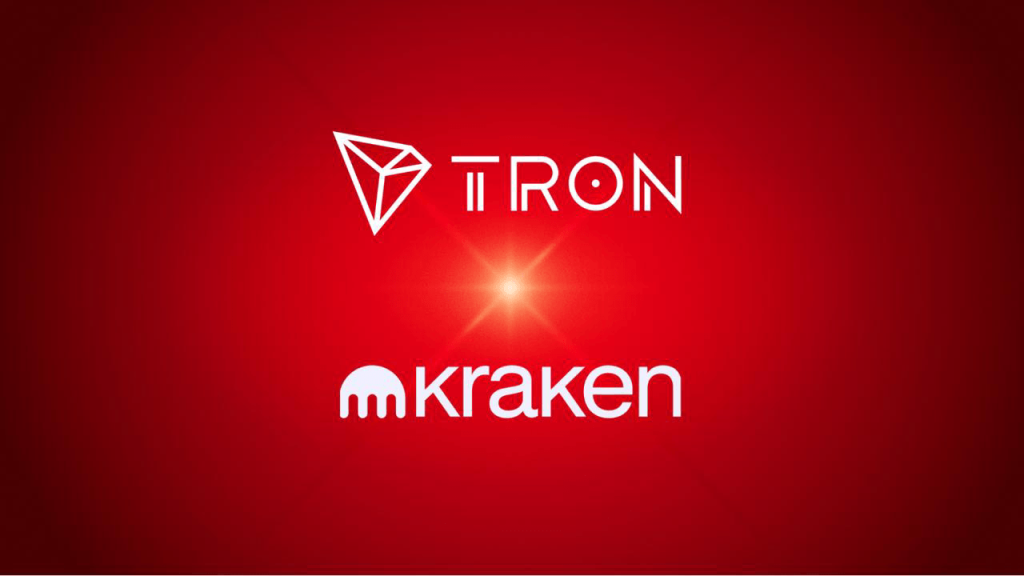
The election of Kraken as a Super Representative (SR) on the TRON network marks a pivotal moment in the evolution of decentralized governance and network security within the TRON ecosystem. This development underscores the growing synergy between decentralized blockchain networks and institutional players, setting a precedent for how blockchain governance can balance community-driven participation with professional oversight.
Understanding Super Representatives in the TRON Ecosystem
TRON operates on a Delegated Proof of Stake (DPoS) consensus mechanism, a model that emphasizes efficiency and community involvement. In this system, TRX token holders elect 27 Super Representatives (SRs) who are responsible for block production, transaction validation, and maintaining network security. The DPoS model is designed to strike a balance between decentralization and operational efficiency, ensuring that the network remains both secure and scalable.
TRON Power, the voting weight accumulated by staking TRX tokens, is a cornerstone of this governance model. Each TRX frozen grants one Tron Power, enabling users to vote for or against Super Representatives. This continuous voting process reflects an ongoing democratic governance structure, where the community has a direct say in the network’s operations. The inclusion of reputable institutions like Kraken enhances this model by introducing professional expertise and institutional trust, thereby strengthening the network’s resilience and credibility.
Kraken’s Election as a Super Representative
Kraken, a leading cryptocurrency exchange known for its robust security and operational excellence, has joined the TRON network as a Super Representative. This move signifies several strategic shifts in TRON’s governance and institutional integration:
Kraken’s extensive experience in handling large-scale transactions and maintaining high-security standards brings a new level of robustness to TRON’s validation processes. Institutional-grade security practices reduce the risk of network attacks or downtime, fostering a more resilient blockchain environment. This is particularly important for applications that rely on TRON’s speed and cost advantages, such as decentralized finance (DeFi) and gaming dApps.
Kraken’s role as an SR signals TRON’s growing appeal to mainstream financial institutions. This institutional participation can attract more investors and service providers, leading to increased liquidity and broader adoption. Additionally, it can help smooth regulatory compliance, as institutional players often bring enhanced compliance protocols and transparent governance standards.
While the SR election process is community-driven, the inclusion of large players like Kraken introduces professional oversight and strategic development capabilities. This dynamic reduces the risk of centralization by static groups and injects fresh perspectives into network governance. It also ensures that the network benefits from the latest technological advancements and best practices in blockchain management.
Broader Trends in TRON’s Super Representative Landscape
Kraken is not the only notable entity contributing to TRON’s validator ecosystem. Other organizations, such as P2P.org, Kiln, and Nansen, also play significant roles. Each of these entities brings unique strengths to the network:
– P2P.org offers multi-chain validation expertise, enhancing TRON’s interoperability and cross-chain capabilities.
– Kiln focuses on decentralized finance solutions, contributing to TRON’s growing DeFi ecosystem.
– Nansen provides blockchain insights and analytics, offering valuable data-driven decision-making tools for the network.
This diverse range of participants highlights the evolving nature of TRON’s governance, which blends decentralized community voting with institutional-grade contributions. This evolution aims to sustain high throughput and low-cost transactions while ensuring network integrity and innovation.
Implications for TRON’s Ecosystem and Users
The dynamic election model encourages ongoing community engagement and responsiveness to validator performance. Kraken’s participation encourages users to trust the network’s operational stability, which is critical for applications such as DeFi and gaming dApps that rely on TRON’s speed and cost advantages.
Users locking their TRX tokens empower selected SRs, which in turn impacts block rewards and governance decisions. Kraken’s presence can influence voter behavior positively, encouraging more TRX holders to participate in staking and governance, thereby reinforcing network security.
Institutional participation tends to bring enhanced compliance protocols and transparent governance standards. Kraken’s involvement can boost confidence among regulators and market participants wary of decentralized platforms’ handling of security and legal requirements. This can lead to greater adoption and investment in the TRON ecosystem.
Challenges and Future Outlook
Despite the benefits, challenges remain in balancing decentralization with the concentration of power among a few large institutional SRs. Continuous community vigilance is necessary to prevent dominance that could undermine TRON’s democratic governance. Moreover, TRON must maintain technical innovation to stay competitive against other Layer-1 blockchains like Solana and Ethereum.
The future points toward a more hybrid governance model where community-driven elections coexist with strategic partnerships involving established crypto institutions. Kraken’s election epitomizes this approach, offering both reliability and decentralized legitimacy. This hybrid model could set a new standard for blockchain governance, demonstrating how decentralized networks can integrate institutional expertise without compromising their core principles.
Conclusion: Kraken’s Role as a Signpost for TRON’s Next Phase
Kraken’s election as a Super Representative represents a milestone in TRON’s journey toward a robust, decentralized, and institutionally credible blockchain network. It underscores TRON’s commitment to enhancing network security and efficiency through decentralized governance backed by professional validators. This blend of community voting power and institutional participation promises a resilient, forward-looking ecosystem poised for broader adoption and innovation in the increasingly competitive blockchain environment. The ongoing evolution of Super Representative dynamics will be critical in shaping TRON’s impact as a Layer-1 platform enabling decentralized applications and digital asset transactions worldwide. As TRON continues to grow, the integration of institutional players like Kraken will play a pivotal role in its success, setting a precedent for how blockchain networks can achieve both decentralization and institutional credibility.





